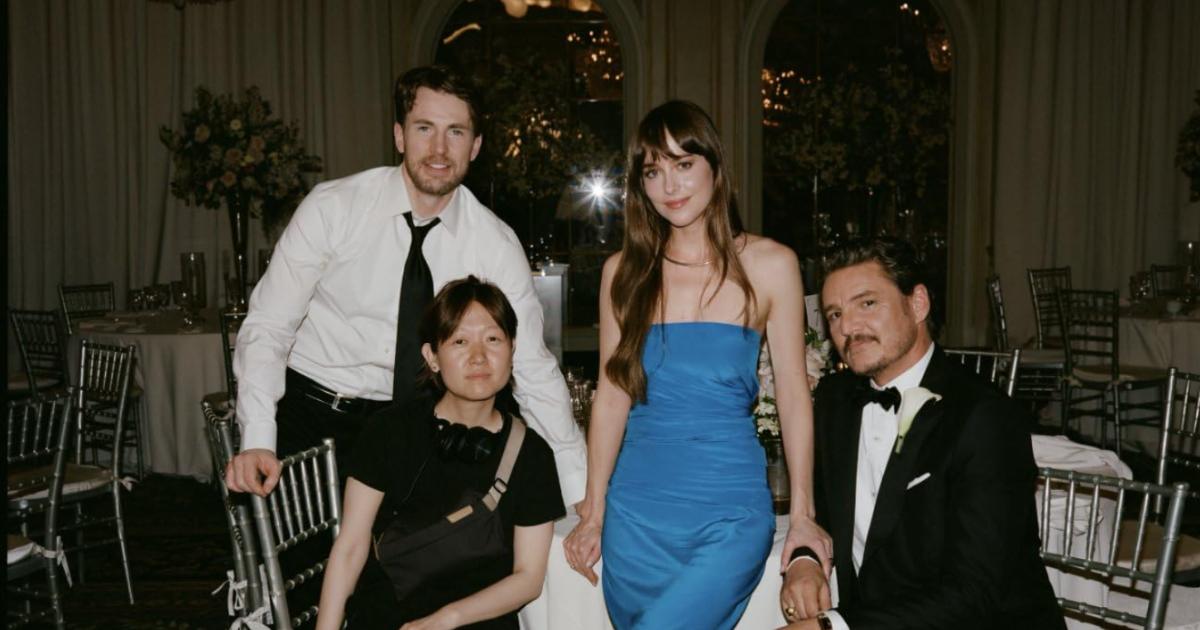Dating Coaches Answer Your Burning Questions About Cheating
Infidelity can shake the very core of any relationship. It leaves behind a trail of confusion, pain, and deep questions about trust. What once felt solid suddenly seems fragile, and both partners may struggle to find a way forward.
In this post, we turn to three experienced dating coaches—Lori, Nancy, and Dawn—who share their insights on why people cheat, how it affects relationships, and what couples can do to start healing. Their advice isn’t just for those who have experienced infidelity, but for anyone wanting to understand its impact and navigate the path to recovery.
Whether you’ve faced infidelity yourself or are simply looking to strengthen your relationship, these experts offer real, science-based strategies to help rebuild trust and emotional connection.
How long have you been a coach? How did you get involved in this line of work?
LORI: I was a matchmaker for five years with The Matchmaking Company. I really enjoyed connecting with my clients, which led me to an opportunity in our coaching division, Love Life Academy.
NANCY: I have been a coach for two and a half years, but I’ve been in the industry for six. I started as a matchmaker in 2018 at a high end, high-touch matchmaking company, where I found myself coaching clients based on my intuition and experiences. That’s when I realized that my true passion lay in coaching rather than matchmaking.
As a coach, I wanted to offer clients helpful tools and science-based advice instead of relying solely on my own perspectives. I enrolled in Dr. Terri Orbuch’s Science-Based Coaching program and the Global Love Institute’s Matchmaking Certification course. Fast-forward to now, and I’m helping clients find their best dating selves every day.
DAWN: I’ve been coaching for three and a half years. I have worked in this industry in different roles for 17 years. After being in another position for a while, I really began to miss working with clients one-on-one.
What do you think are the main reasons people cheat in relationships?
LORI: They get married for the wrong reasons. The relationship starts off on shaky ground, and the usual effort needed to maintain a healthy partnership becomes overwhelming for busy people with life happening all around them. When they don’t establish strong, secure bonds built on true compatibility, those bonds weaken. This leads to complacency, followed by feelings of neglect.
NANCY: The main reasons people cheat often stem from unmet needs in the relationship. This can include a lack of connection, intimacy, sexual fulfillment, love, neglect, or issues related to self-esteem, among others.
DAWN: They struggle to communicate their needs with their partner, or they fail to connect on a deep emotional level. Both are essential for building trust. Some people are unwilling to put in the consistent effort it takes to grow together in a relationship, and as a result, they slowly drift apart.
Are the reasons different for men and women?
LORI: Not really. Anyone can feel neglected or distracted from their commitment to their partner. There’s no gender requirement for the thoughts and feelings that can lead to infidelity.
NANCY: Generally speaking, women often cheat when they’re unhappy in their relationships, which typically signals the end of the relationship. They are more likely to be seeking both sexual intimacy and emotional connection in an affair.
Men can cheat for similar reasons, but they may be more likely to seek sex outside the marriage without any emotional ties. Men tend to compartmentalize sex and emotional connection. For this reason, they may cheat with no intention to leave their marriages.
DAWN: I think a desire for connection and emotional intimacy are the biggest reasons for both men and women, but the way it manifests is often different.
Some men have admitted they cheated because there was an available opportunity at the time. Though they may be regretful later, at the time, it’s like, “Why not? It doesn’t mean I don’t still care about my wife.”
On the other hand, some women will succumb to a weak moment of vulnerability just to fill a void. Clients have told me it’s about wanting to be desired.
Either of these scenarios can be true for both men and women, though. It’s not cut-and-dry.
Why not? It doesn’t mean I don’t still care about my wife.
What is the emotional impact of being cheated on?
LORI: Being cheated on can have a profound emotional impact, which varies depending on a person’s security, attachment style, and the foundation of the relationship. It often leads to emotional insecurities like self-doubt, negative self-talk, catastrophizing, and difficulty being vulnerable or trusting again. People may also struggle with setting boundaries after such a betrayal.
However, emotions can’t be easily generalized since everyone experiences them differently. People are like fingerprints this way, no two reactions are the same. Without doing the hard work of analyzing how and why the infidelity occurred, the emotional aftermath can feel confusing, overwhelming, and difficult to untangle.
NANCY: The emotional and psychological impact of betrayal can be devastating, shocking, and difficult to process. It prompts you to question everything you believed about the person, as it represents a profound betrayal.
Feelings of anger and sadness can arise, leading to a sense of loss that may result in what some professionals are calling post-infidelity stress disorder (PISD), depression, and a diminished ability to trust again. It can be a long healing journey.
DAWN: When someone is cheated on, it can feel like a deep betrayal. Thoughts often spiral into self-doubt: What’s wrong with me? Did I fail to give my partner something they needed? Am I not attractive enough, not romantic enough? Have I lost my sex appeal? This emotional turmoil can be overwhelming, leading to feelings of inadequacy and confusion.
What’s wrong with me? Did I fail to give my partner something they needed? Am I not attractive enough, not romantic enough? Have I lost my sex appeal?
How does infidelity affect the person who did the cheating?
NANCY: They may begin to question their own worth and trustworthiness, leading to feelings of shame and regret. These emotions can contribute to anxiety and depression.
DAWN: It feels awful to be cheated on, but it doesn’t feel good to be the cheater, either. They often admit they wish they never did it. They regret it and feel guilty, especially if they really care about their partner. It may have been a weak moment.

What are the biggest challenges couples face when trying to heal from infidelity?
LORI: Rebuilding trust is a major hurdle, along with restoring emotional intimacy. Couples also need to cultivate a curious mindset about each other again, improving communication and learning how to heal from triggers. It’s important not to project past hurts or continually blame one another. These are just a few of the challenges couples often face on the road to recovery.
NANCY: To rebuild trust after betrayal, both partners must be committed to the healing process. The betrayer should be patient, reassuring, and genuinely apologetic, demonstrating a willingness to do whatever it takes to restore their partner’s trust. Meanwhile, the betrayed partner needs the space to express their feelings, articulate their needs for healing, and work toward forgiveness.
DAWN: Overcoming trust and commitment issues is the first and largest challenge. Sometimes waiting for the other shoe to drop after a disagreement becomes a problem. It’s important to recognize that oftentimes it’s not the partner’s fault, but a lingering insecurity or lack of closure from the cheating that needs to be addressed.

How should someone approach dating again after experiencing infidelity?
LORI: It’s a good idea to seek counseling or coaching to help you rebuild your confidence and figure out what you need in a healthy relationship. Focus on your own interests and self-care first. Talking with a professional can help you learn how to trust again, set boundaries, open up emotionally, and deal with the trauma of infidelity. It’s a serious process and will take time and effort, but it’s worth it to feel ready to date again.
NANCY: After working through trauma, it’s essential to approach dating with intention. Work with a coach or another professional to prioritize your self-care. Take time to reflect on your needs and values to clarify what you truly want. It’s crucial to enter the dating scene not from a place of resentment or anger, but with a healed heart open to a loving, healthy, and secure relationship.
DAWN: Learn to trust your own intuition and pay attention to how your body is feeling when you are with someone. Make sure actions match their words over time, and address things when they come up in a kind way.
See if they make you feel seen, heard. Do you feel like they have your best interest at heart? Hopefully you feel that they are dependable, reliable, and predictable. If you’re not feeling right about a situation with a partner new or old, ask questions, don’t assume.

What is your advice for those who have cheated in past relationships?
LORI: It’s essential to communicate openly with your partner. Share your positive emotions and then express any needs or desires for change in areas of the relationship that aren’t fulfilling. It’s about ensuring both partners feel happy, safe, secure, heard, and comfortable.
Do the work—you owe it to yourself and your partner to be respectful, honest, and open. Being honest is a choice, a character decision. While it’s a simple concept, not everyone has the capacity to be this forthright.
NANCY: Take time for introspection to understand the root causes of infidelity. What core wounds are you avoiding? Is it a fear of being trapped, or a fear of intimacy leading to self-sabotage due to the potential for rejection? Working with a professional can help uncover these underlying issues, which is key to learning how to build and sustain a secure, healthy relationship.
DAWN: Focus on finding happiness within yourself. Don’t expect someone else to complete you—no one can make you happy if you’re not already happy with yourself. Celebrate your own positive traits. A partner can enhance your life, but they shouldn’t carry the burden of your happiness.
Reflect on past relationships—were you too hasty, or could you have communicated better? Also, explore if there are unhealed wounds or childhood trauma that influence your relationship choices. Familiar but unhealthy dynamics from the past may lead you to undervalue relationships or struggle with conflict resolution and boundaries.

What resources would you recommend to someone who has experienced infidelity?
LORI: A certified counselor with experience in the area, a dating coach, or another qualified professional. However infidelity has affected your life, you don’t have to pick up the pieces alone.
NANCY: Affair recovery is a YouTube channel with infidelity-specific content created by professionals. Transcending Post-Infidelity Stress Disorder (PISD) by Dennis Ortman, PhD gives an in-depth look at the emotional impact of cheating. I also recommend the Gottman Institute’s content on the subject.
DAWN: Not Just Friends: Rebuilding Trust and Recovering Your Sanity After Infidelity by Shirley Glass, PhD is a great book for those looking for a way forward after infidelity. I also found The Other Side of Infidelity, a speech by Dr. Kevin Skinner at the TEDxRiverton conference to be valuable.
Final Thoughts
Healing from infidelity is a difficult process, but it’s not impossible. As our coaches shared, rebuilding trust and emotional intimacy doesn’t happen overnight. It requires a lot of work, patience, and often, professional support.
For some, the journey begins with learning how to communicate openly again. For others, it’s about reconnecting emotionally and finding a way to rebuild what’s been lost. The important thing to remember is that healing is a personal process. It looks different for every couple and every individual.
Whether you’re working to mend a relationship or focusing on regaining your own confidence, give yourself the time and space to heal. With honest conversations, self-care, and the willingness to forgive, you can rebuild trust and create stronger connections—either with your partner or with yourself.









